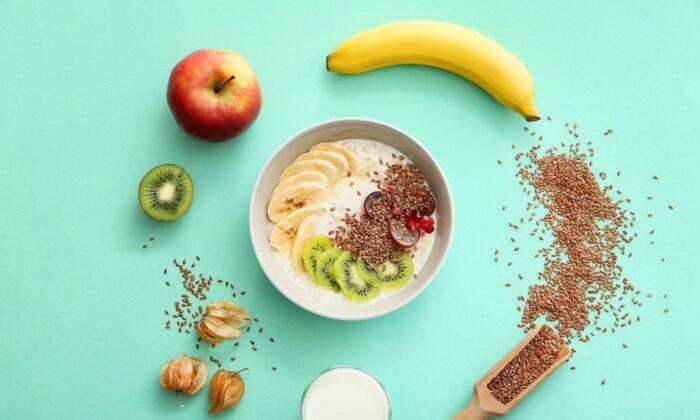What is the best technique and the best frequency for tongue scraping?
Previously, in my video “Tongue Scraping vs. Tongue Brushing for Treating Halitosis (Bad Breath)” [NT1] I explored how tongue cleaning may be the best way to cut down on bad breath. And it has the remarkable side-benefit of potentially helping with blood pressure regulation, as daily tongue cleaning appears to favor the increased abundance and metabolic activity of the good bacteria on your tongue that help you make your body’s natural artery dilator nitric oxide. But there’s another way tongue cleaning may improve your blood pressure.
After two weeks of tongue cleaning, you can improve your sensitivity to tasting salt, and a follow-up study found that just a single cleaning can do it. They applied a drop of tomato soup to people’s tongues before and after they cleaned their tongues with a plastic tongue scraper with the adorable name Scrapy. They experienced a significant increase in salt taste intensity. Why is that good? Because if a simple tongue cleaning could change the perceived intensity of salt, it could be used to rapidly make lower salt concentrations more acceptable to people without changing the palatability of the food.
They therefore recommend that people scrape their tongue every day in order to adapt to foods with lower salt concentrations, to effectively decrease their taste for death. After all, excess sodium intake is the deadliest thing about the human diet, responsible for millions of deaths every year. So, that benefit alone could justify tongue cleaning.
Okay, so what’s the best way to do it? A systematic review and meta-analysis concluded that tongue cleaning offers benefits—however, there is insufficient evidence to recommend a specific frequency, duration, or method of tongue cleaning. But let’s see what data are out there. Tongue scraping was found to be slightly more effective than tongue brushing in treating bad breath—perhaps due to the fact that the width of a toothbrush is smaller than the width of a tongue scraper. But there are now toothbrushes on the market with a tongue scraper on the back of their head. (Here’s what they look like, and they seem to have a similar performance in terms of breath improvement.)
Some people feel that tongue brushing is more gag-inducing than tongue scraping—so, they appear to prefer scrapers. On the other hand, if you just brush your tongue, you don’t have to buy an extra gizmo.
Technique-wise, you want to make sure you include the back of the tongue, and, importantly, the cleaning should be gentle to prevent damaging your tongue. Cleaning too hard with a tongue scraper can risk tongue injury. And you should just clean the top surface of your tongue, not the sides of your tongue.
How often should you do it? Tooth brushing should be twice a day, but the tongue cleaning recommendations seem to be more uncertain; so, researchers decided to study the rate of re-formation of tongue coatings after scraping. They took folks who had at least 20 percent of their tongue covered with a coating thick enough to conceal the pink color of their tongue.
They started out with about a third of their tongue covered and scraping reduced it to under 10 percent. The question is: how long would it take to regrow? On average, tongue coating scores had returned to baseline levels on day two; so, if tongue cleaning is to be recommended, it should probably be performed on a daily basis.
What kind of scraper is best? Researchers had people try nine different tongue scrapers. Here are the brand names—rated them using six different criteria. Meridol® and Scrapy® were the two most preferred brands out of the available options.
What’s the best way to disinfect tongue scrapers and toothbrushes? In my video on the best water purifier “Is It Best to Drink Tap, Filtered, or Bottled Water?” I ended up speaking about disinfecting your toothbrush by soaking it in a 50:50 white vinegar water solution for 10 minutes. But this is even easier—just microwaving your toothbrush or tongue scraper for one minute.
Then, you don’t have to keep buying new toothbrushes. And it’s interesting that we don’t even know exactly why it works. You’d think it’s just heat sterilization, but there must be other factors since I nuked my toothbrush for a minute, and it hardly even got warm. But it kills off the bacteria, nonetheless.
What about all the fancy new tongue cleaners on the market? Throughout the last century, there have been many U.S. patents on various ingenious tongue-cleaning devices. I mean, how much money can you make selling plain little cheap plastic ones? So, how about an ultrasound tongue cleaner or tongue cleaning using a high-speed vacuum ejector, or a suction tongue-cleaning device, like a tongue Roomba?
But alas, a consensus group of dental professionals say there’s no evidence that substantiates the benefits of using any kind of electrical device to clean your tongue. In fact, the lowest tech option is in everyone’s home right now without buying a thing. Just use a simple spoon.
- Faveri M, Hayacibara MF, Pupio GC, Cury JA, Tsuzuki CO, Hayacibara RM. A cross-over study on the effect of various therapeutic approaches to morning breath odour. J Clin Periodontol. 2006;33(8):555-60.
- Tribble GD, Angelov N, Weltman R, et al. Frequency of tongue cleaning impacts the human tongue microbiome composition and enterosalivary circulation of nitrate. Front Cell Infect Microbiol. 2019;9:39.
- Quirynen M, Avontroodt P, Soers C, Zhao H, Pauwels M, van Steenberghe D. Impact of tongue cleansers on microbial load and taste. J Clin Periodontol. 2004;31(7):506-10.
- Seerangaiyan K, Jüch F, Atefeh F, Winkel EG. Tongue cleaning increases the perceived intensity of salty taste. J Nutr Health Aging. 2018;22(7):802-4.
- Sigurdsson EL. Salt: a taste of death? Scand J Prim Health Care. 2014;32(2):53-4.
- GBD 2017 Diet Collaborators. Health effects of dietary risks in 195 countries, 1990-2017: a systematic analysis for the Global Burden of Disease Study 2017. Lancet. 2019;393(10184):1958-72.
- Kuo YW, Yen M, Fetzer S, Lee JD. Toothbrushing versus toothbrushing plus tongue cleaning in reducing halitosis and tongue coating: a systematic review and meta-analysis. Nurs Res. 2013;62(6):422-9.
- Outhouse TL, Al-Alawi R, Fedorowicz Z, Keenan JV. Tongue scraping for treating halitosis. Cochrane Database Syst Rev. 2006;(2):CD005519.
- Van der Sleen MI, Slot DE, Van Trijffel E, Winkel EG, Van der Weijden GA. Effectiveness of mechanical tongue cleaning on breath odour and tongue coating: a systematic review. Int J Dent Hyg. 2010;8(4):258-68.
- Casemiro LA, Martins CHG, de Carvalho TC, Panzeri H, Lavrador MAS, Pires-de-Souza F de CP. Effectiveness of a new toothbrush design versus a conventional tongue scraper in improving breath odor and reducing tongue microbiota. J Appl Oral Sci. 2008;16(4):271-4.
- Dwivedi V, Torwane NA, Tyagi S, Maran S. Effectiveness of various tongue cleaning aids in the reduction of tongue coating and bacterial load: a comparative clinical study. J Contemp Dent Pract. 2019;20(4):444-8.
- Renvert S, Noack MJ, Lequart C, Roldán S, Laine ML. The underestimated problem of intra-oral halitosis in dental practice: an expert consensus review. Clin Cosmet Investig Dent. 2020;12:251-62.
- Zürcher A, Laine ML, Filippi A. Diagnosis, prevalence, and treatment of halitosis. Curr Oral Health Rep. 2014;1:279-85.
- Chérel F, Mobilia A, Lundgren T, et al. Rate of reformation of tongue coatings in young adults. Int J Dent Hyg. 2008;6(4):371-5.
- Beekmans DG, Slot DE, Van der Weijden GA. User perception on various designs of tongue scrapers: an observational survey. Int J Dent Hyg. 2017;15(4):e1-8.
- Spolidorio DMP, Tardivo TA, dos Reis Derceli J, et al. Evaluation of two alternative methods for disinfection of toothbrushes and tongue scrapers. Int J Dent Hyg. 2011;9(4):279-83.
- Christen AG, Swanson BZ. Oral hygiene: a history of tongue scraping and brushing. J Am Dent Assoc. 1978;96(2):215-9.
- Amaechi BT, Abdul Azees PA, Menon S, Kasundra H. In vitro evaluation of the effects of Ultrasound Tongue Scraper on bacteria and biofilm formation. J Investig Clin Dent. 2019;10(4):e12471.
- Bordas A, McNab R, Staples AM, Bowman J, Kanapka J, Bosma MP. Impact of different tongue cleaning methods on the bacterial load of the tongue dorsum. Arch Oral Biol. 2008;53 Suppl 1:S13-8.
- Rhyn S, Zürcher A, Ortiz V, Filippi A. The efficiency and acceptance of a suction tongue-cleaning device in adults. Swiss Dent J. 2020;130(4).
- Seemann R, Conceicao MD, Filippi A, et al. Halitosis management by the general dental practitioner--results of an international consensus workshop. J Breath Res. 2014;8(1):017101.
- Danser MM, Gómez SM, Van der Weijden GA. Tongue coating and tongue brushing: a literature review. Int J Dent Hyg. 2003;1(3):151-8.





